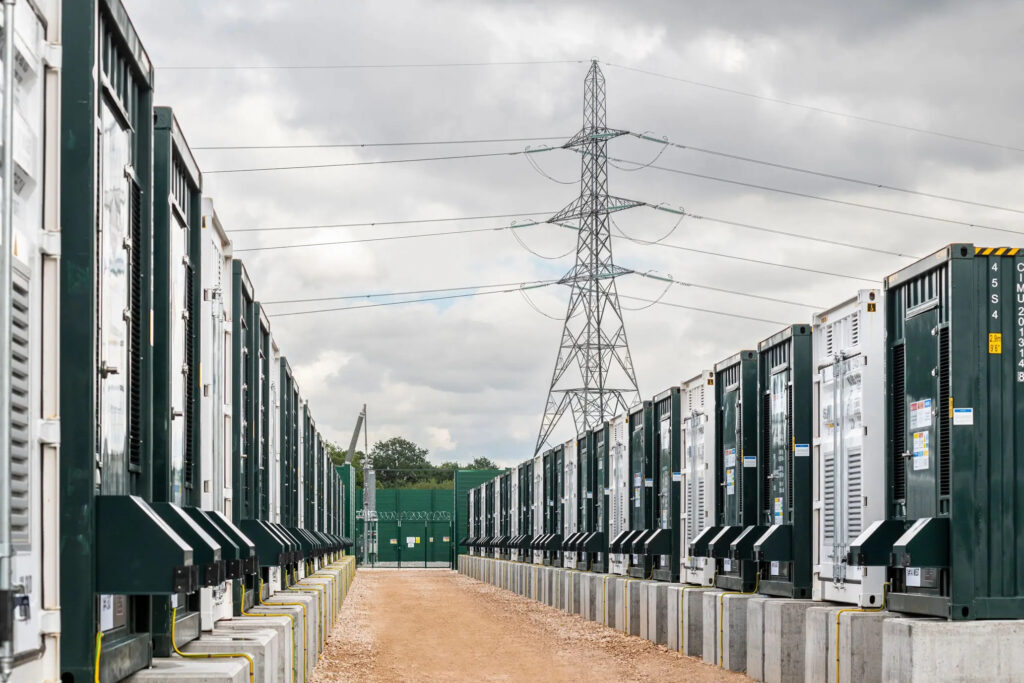Zenobē Energy’s 100MW/107MWh Capenhurst battery energy storage system (BESS) has begun delivering reactive power services to the grid, as part of a world first contract.
The company began construction of the project in June 2021, having secured a financing deal with partner Santander, which it began working with back in 2019.
Now its operational, the Capenhurst BESS, located in Chester, is the largest battery project directly connected to the transmission grid anywhere in Europe, according to Zenobē Energy.
The BESS will reduce the amount of curtailment of renewable energy, particularly wind, in the Mersey region of north-west England where it is located, as well as reducing the amount of gas-fired generation needed to balance the supply and demand of electricity.
Zenobē noted that in December alone, UK transmission system operator (TSO) National Grid spent £82 million in payments to generators, which were curtailed due to their produced energy exceeding network hosting capacity.
Over the first 15 years of the Capenhurst 100MW BESS’ operation, it alone should reduce curtailment to the extent that it will save the TSO £58 million, according to Zenobē.
This figure was arrived at by calculating the £16 million difference in cost between the long-term reactive power contract versus existing reactive power solutions, with those existing solutions meaning fossil fuel plants, typically combined cycle gas turbine (CCGT) plants, aka peaker plants.
Added to that sum is the amount forecast to be saved on balancing services and constraint management, which is about £41 million. The project will also go some way to reducing the overall volatility of electricity pricing, Zenobē claimed.
Capenhurst to provide reactive power thanks to ESO Pathfinder contract
The project’s reactive power management deal was the impetus for it going ahead. Zenobe was awarded that contract by National Grid Electricity System Operator (National Grid ESO) as part of its Pathfinder scheme.
Following on from an initial 10MW trial project, Capenhurst became the first in the world to win a long-term contract from the country’s transmission system operator to directly absorb reactive power from the transmission network in April 2021
“With Capenhurst, we’re solving a key issue on the grid in the Merseyside region whilst significantly enhancing the nation’s use of renewable power,” Zenobē co-founder and director James Basden said.
In February 2022, the company appointed renewable energy consultancy and service provider Natural Power to provide grid code compliance services for the battery once operational, using its ControlCentre.
Zenobē Energy was a relatively fast early-mover in the UK’s booming battery storage market, and currently has around 1.6GW of projects in construction or development in the country. It also provides e-mobility solutions, focusing on electric buses and associated infrastructure.
In May last year, the company began construction of another transmission-connected BESS, in North Lanarkshire, Scotland. That project will be 50MW/100MWh and financial close was reached in May last year. Santander again played a financing role.
In a recent Guest Blog for this site, analyst Mollie McCorkindale of Solar Media Market research highlighted that 2022 was a record-breaking year for the UK market.
New utility-scale battery storage capacity additions totalled 800MWh for the year, the largest annual deployment figure seen in megawatt-hour terms in the country, for a cumulative 2.4GW/2.6GWh. Meanwhile average project sizes are growing larger and durations longer, McCorkindale wrote.
This article originally appeared on Current±’s sister site Energy Storage News.
Current±’s publisher Solar Media will host the 8th annual Energy Storage Summit EU in London, 22-23 February 2023. This year it is moving to a larger venue, bringing together Europe’s leading investors, policymakers, developers, utilities, energy buyers and service providers all in one place. Visit the official site for more info.





